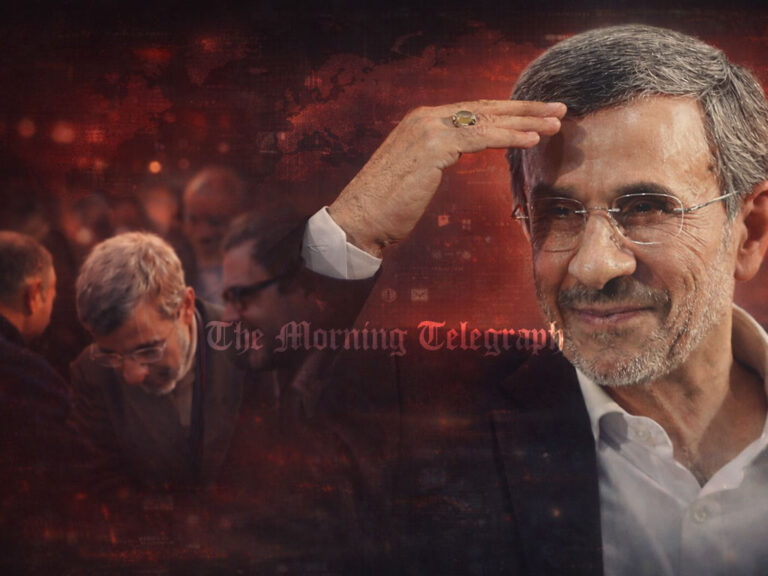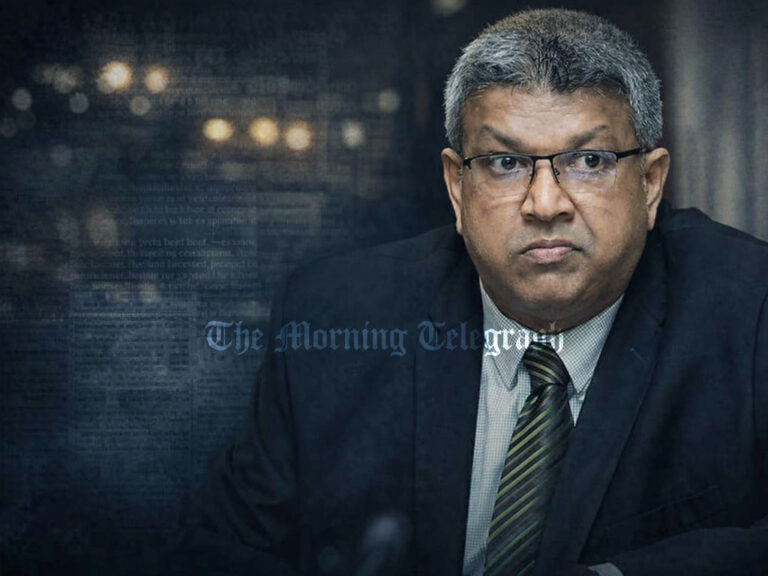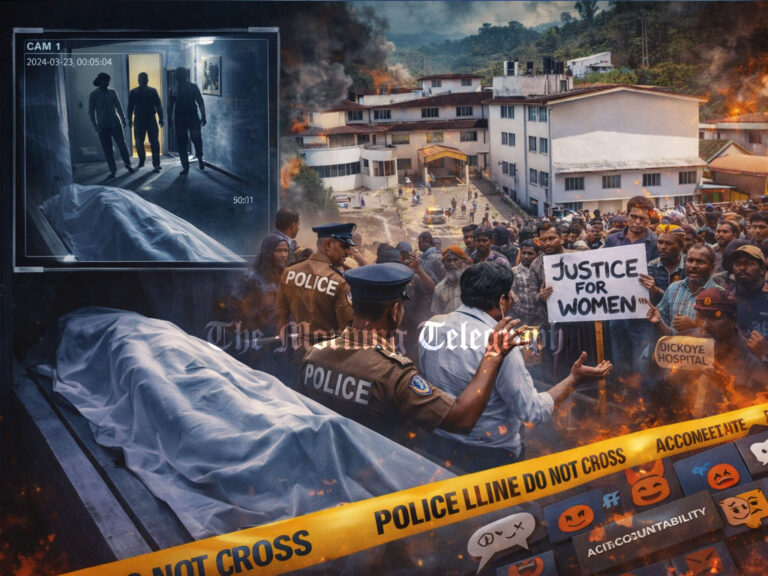
(COLOMBO) – A former Sri Lankan Parliamentarian on Monday filed a Fundamental Rights petition in the Supreme Court seeking an order restraining Deshabandu Tennakoon from discharging the duties and functioning in the office of Inspector General of Police (IGP).
In her petition, Hirunika Premachandra named Secretary to the President Saman Ekanayake, Chairman of the Constitutional Council Speaker Mahinda Yapa Abeywardana, members of the Constitutional Council and the Attorney General as respondents.
The petitioner stated that the Attorney General had made a communication to name Tennakoon as a suspect in a matter before the Magistrate’s Court of Fort pertaining to the attack on peaceful protesters at Galle Face on May 09, 2022.
The petitioner further stated that a recent Supreme Court judgement also found that Deshabandu Tennakoon, had violated the fundamental rights of a former army soldier and ordered him to pay Rs.500,000 as compensation.
The petitioner states that the failure to take all possible steps in selecting and appointing a suitable candidate is contrary to the best interests of the people, and contrary to the duty of all organs of State to respect, secure and advance the Fundamental Rights of the people.
The petitioner maintained that this appointment would result in a direct attack on the Rule of Law, and a consequent denial to the petitioner and the citizens’ rights guaranteed by the Constitution and ignoring clear constitutional provisions in particular concerning the manner of voting in the constitutional council when only four members have voted in favour of such appointment.
The former lawmaker’ petition comes barely days after a Sri Lankan think tank and rights watch dog lodged a petition with the Supreme Court challenging the legality of Deshabandu Tennakoon’s appointment as the country’s Inspector General of Police (IGP).
The Centre for Policy Alternatives (CPA) stated that the petition was filed against the presidential appointment of Tennakoon, citing constitutional violations.
The Constitution of Sri Lanka mandates that such appointments by the President require approval from the Constitutional Council, with a minimum of five votes in favour. Allegations from the Leader of the Opposition, a Council member, suggested that the IGP appointment did not receive the necessary mandate.
President Ranil Wickremesinghe appointed Tennakoon as the 36th IGP on February 26, following clearance from the Constitutional Council. This decision came despite Tennakoon and three other police officers being directed by the Supreme Court to compensate two million rupees in a fundamental rights case the previous year.
Tennakoon’s appointment has come under flak from several quarters mainly from rights group organizations in the country and overseas since his appointment on February 26.
Early last week the Sri Lankan Young Journalist Association also filed action in the same courts challenging Tennakoon’s appointment.




